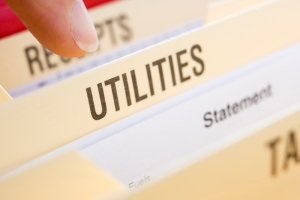
From simple pieces of paper like sales receipts, to those that encapsulate your identity like a birth certificate – deciding how to classify personal documents can be a challenge. Properly identifying documents to keep or shred, not only declutters your life – but also plays an important role in protecting your identity. Let’s take a look at what documents you should consider shredding or keeping, and how you should store the ones you aren’t parting with.
Immediately Shred
The below documents can generally be discarded as soon as you receive them or are notified of their expiration, so long as they are shredded.
- Sales receipts – Unless you anticipate that you will need to make a return.
- ATM receipts
- Expired warranties
- Expired credit cards and driver’s licenses
Keep for a Year – Then Shred
- Bank statements
- Pay stubs
- Paid, undisputed medical bills
- Credit card and utility bills
- Deposited checks
Pro tip: If you can access these documents electronically, you should consider shredding your paper copies.
Keep for Seven Years – Then Shred
You might notice that the below list of items are all tax-related. The Internal Revenue Service (IRS) can audit you at any time in certain circumstances, so it’s best to hang onto your tax return documents for at least seven years.
- W-2s
- Tax-related receipts and cancelled checks
- Records for tax deductions taken
If you have questions related to tax documents you should hang onto, consult an accountant or your local Taxpayer Assistance Center office.
It Depends
The below items have varying dates on how long to keep the paperwork around.
- Loan documents. In the case of certain loans, such as auto loans or student loans – it is generally recommended to keep paperwork related to the loan until it’s paid off. This can include the loan agreement and a record of your payments.
- Property records. You will want to keep the title and deed to your home as long as you own the home. Additionally, you will want to keep records of expenses related to major home improvements until you sell your home, as this will become important should you decide to sell.
- Sales receipts and warranty information for major appliances. Keep the receipt and warranty information while you own the particular appliance, should anything go wrong.
- Title to your vehicle. Keep the title while you own the vehicle to prove ownership. When you decide to sell or trade-in the vehicle, you will be required to give the title to the dealership or the new owner.
Forever Documents
There are some documents that you should never part with – and lock up while you’re at it.
- Birth certificate or adoption papers
- Social Security cards
- Valid passports and citizenship or residency papers
- Marriage licenses and divorce decrees
- Wills, living wills, power of attorney, retirement and pension plans
- Death certificates of family members
- Vital health records (especially records that aren’t stored electronically)
Looking to Shred Documents?
Properly disposing of documents with personal or financial information can help protect your identity. Here are some ways you can safely shred your documents.
- Local shred events. There are various organizations that will host shred events, such as banks, credit unions, and local municipalities. Check your town’s website or local Facebook groups to see when one nearby may be taking place.
- Several retailers such as Staples, FedEx, and UPS Stores – offer shredding services. Call the local retailer you select in advance, to ensure the service is available at that particular location.
- Purchase your own shredder. Research shredders that might be right for you, depending on the volume, type, and security requirements of the documents you expect to shred.
It is important to note that the above guidelines for keeping and shredding certain documents are general suggestions, with experts sometimes offering varying advice. The guidelines depend on various factors, such as the type of document and the legal requirements or expectations associated. If you are ever unsure, it might be best to err on the side of caution and keep and safely store the document in question longer than might be necessary. You can also consult the issuer of the document for questions.
If you have questions related to documents associated with your First Financial accounts – don’t hesitate to call us at 732.312.1500 or visit your local branch.
